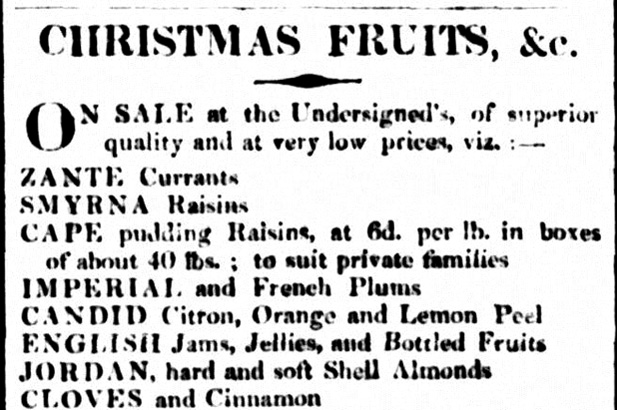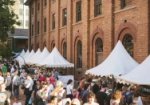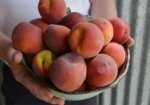Sydney’s newspapers from the 1840s indicate that there was no shortage of good fare for the festive table, advertising plenty of both imported and local produce. Cooks, on the other hand, could be hard to come by.
Christmas good cheer
Apart from the regular butchers’ meats, Sydney Markets reports from December 1841 tell us that:
the lovers of Christmas good cheer may expect poultry in beautiful order for this yearly festival
The lists included: geese, turkeys, fowls and pigeons (both sold by the pair), farmed and wild ducks (wild ducks almost half the price of farmed), and rabbits.
Sydney’s food bowl
Prices had ‘fallen a little owing to a supply coming from the Richmond and Windsor districts’. These ‘districts’ northwest of Sydney – not far from HHT’s historic Rouse Hill House & Farm – are still nicknamed ‘Sydney’s food bowl’, with extant poultry farms, orchards and market gardens, despite being under threat from expanding suburbia.
The bloom of the garden
Vegetables on sale at the markets included: carrots, peas, spring onions, turnips, asparagus, broccoli, cabbages – red and white, French and broad beans, cucumbers, marrow, radishes and rhubarb.
‘The fruit market presented a fine appearance this morning. Cherries, plums and apricots, covered with the bloom of the garden, decked several stalls’.
Also available, were sweet and Lisbon lemons, loquats, and ‘plentiful’ oranges but scarce bananas.
Good help is hard to find
A capable cook was all that was required to turn this selection of market produce into food fit for the table. You’d think there would have been no lack of domestic staff while the transportation of convicts from Britain was still current, but… there was a shortage of experienced cooks.
Most of the newly arrived convicts from Britain had little or no exposure to such quality produce, so good cooks were in high demand. Letters and diaries from the Rouse family at Rouse Hill House, for example, express the frustration in finding decent domestic help; especially during the 1850s, when transportation to New South Wales had ceased and the gold rush began, causing an exodus of people from private employment.
Source
Sydney Gazette and Advertiser, 4 December 1841, TROVE, National Library of Australia.



